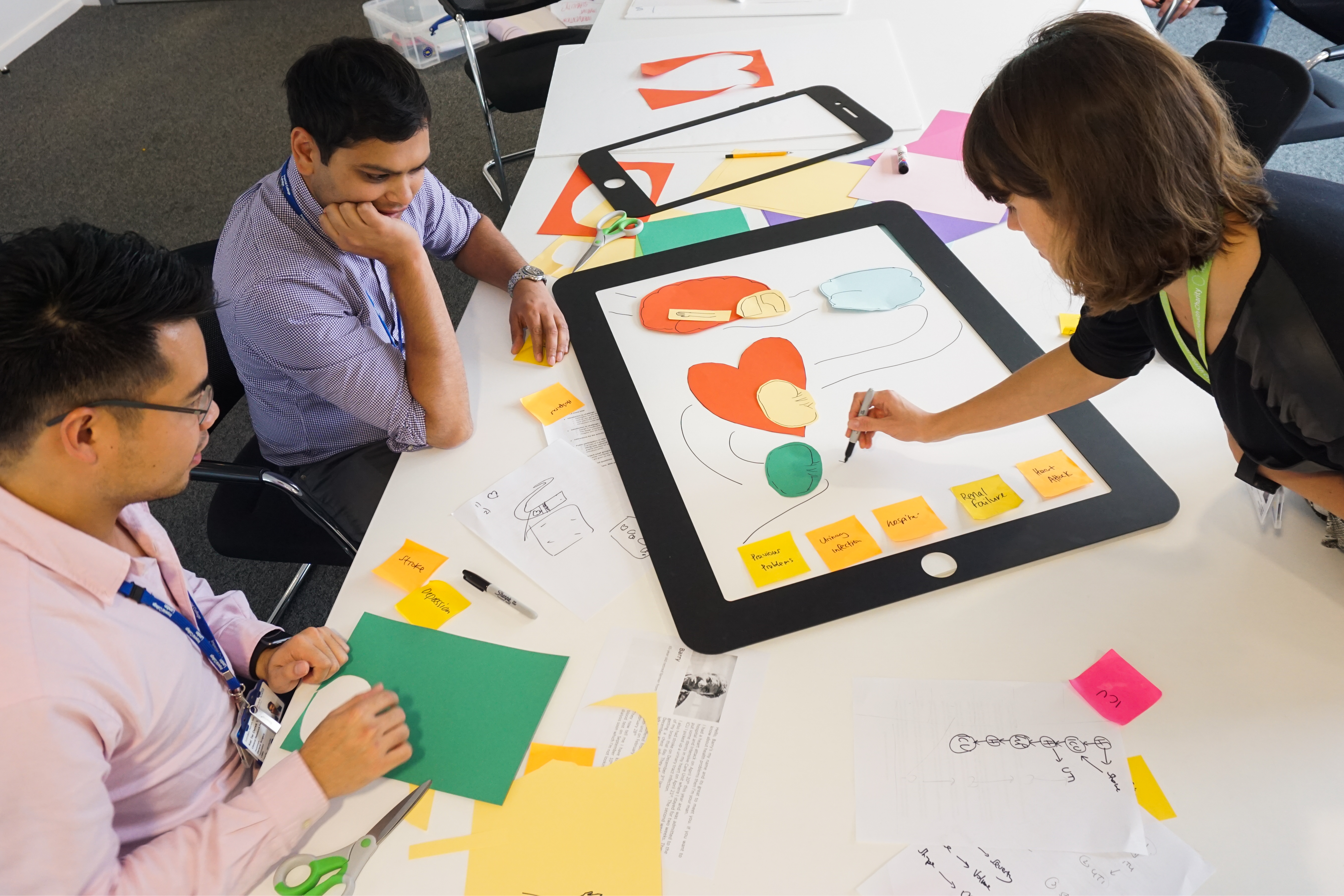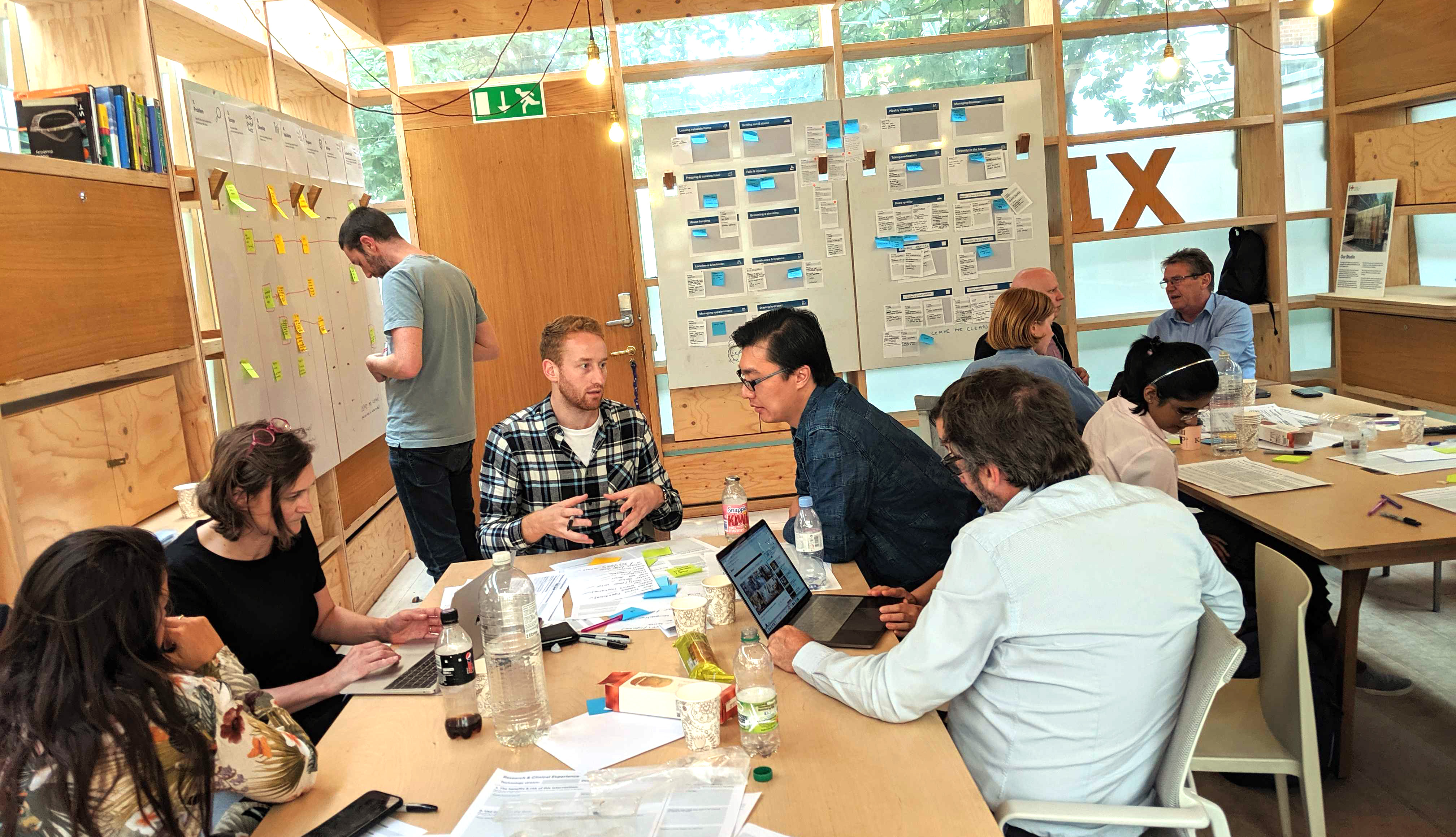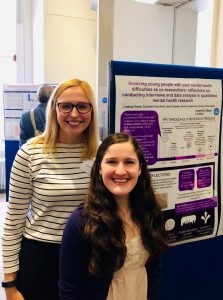Putting people at the heart of dementia research

By Justine Alford, IGHI Communications Manager
All around us, technology is making our lives easier. Google Maps has allowed us to ditch the A-Z; apps can bring you everything from takeaways to taxis; Alexa won’t let you forget your anniversary again; the World Wide Web is your never-ending guide to everything on this planet and beyond; the list is seemingly endless.
Yet while many of us may be most familiar with the convenience and shortcuts that everyday technology bestows us, its potential to positively impact our lives stretches far beyond this. Arguably one of technology’s greatest assets is that it is an enabler, allowing ordinary people to do more. And for people with dementia, it could enable greater independence, helping more people to stay at home, reducing hospital visits and delaying the need to move to a care home.
That is the foundation upon which Imperial College London’s new dementia research centre – part of the UK Dementia Research Institute (DRI) – was built. Led by Professor David Sharp, the Centre’s goal is to develop new technologies for a “Healthy Home environment”, a smart system that monitors people with dementia in a number of ways and enables early identification of health problems, leading to swift intervention and support. And our Helix Centre has partnered with this new research centre to make sure that people are put at the heart of these emerging technologies.
“People are becoming jaded that research in the lab won’t make a difference in the real world,” says Matt Harrison, designer working in the Helix team.
“What’s unique about this work is that it marries what happens at an academic institution with the expectations of the eventual users of the service and their loved ones. We’re really excited to help close the gap between research and the lives of people with dementia.”
An extra pair of hands
Dementia is major public health concern. There are around 850,000 people living with dementia in the UK, but that number is expected to rise to more than a million by 2025. And with dementia patients occupying a quarter of NHS hospital beds, and accounting for almost 70% of people in care homes, we urgently need ways to help our systems cope with the increasing strain on services.

With effective treatments yet to appear on the horizon, one way to alleviate the burden is to keep people at home. But rather than simply diverting resources from one environment to another, the new centre for Care Research and Technology (CRT) wants to create a smart system that will help people with dementia to become more independent at home.
“What’s being developed is a smart home service integrated with a clinical dashboard that enables health professionals to keep track of how people are doing,” Matt says.
“The aim is for most of the technology to be passive within the home, so that people don’t have to actively engage with it. These parts will monitor people in a number of ways, such as looking at their sleep and movement patterns and detecting urinary infections. While others will offer a friendly helping hand, such as giving reminders for appointments.”
This system isn’t being developed entirely from scratch. Rather it’s being built on foundations already developed by the CRT’s collaborators, the University of Surrey. Having an existing model to augment will hopefully mean that the technologies can reach people sooner.
Design for dementia
A key part of this research endeavour is to make sure that what’s being developed truly meets the needs of those that it is designed to benefit – people with dementia, their carers, and healthcare professionals. That’s where Helix comes in.
Over the years researchers have begun to realise more and more the value that input from end-users adds to research. Whether this is patients, the public, people working on the frontline or all of the above, these individuals offer a unique insight into people’s needs and expectations. This helps make research more meaningful and more likely to succeed when applied to the real world.
Traditionally this kind of input has come through involvement practices. Researchers might send out surveys, or hold focus groups and workshops to consult target users and feed their thoughts back into the work.
“What we’re doing is taking involvement to the next level,” says Pip Batey, designer at Helix. “Bringing in human-centred design adds in an additional perspective to patient and public involvement. They both have the same ethos – ensuring that research is carried out with, not for people – but they use different approaches.”
A winding path of discovery
Human-centred design is rooted in a deep understanding of how people live their lives. Thus people, in this case users of the technology, aren’t merely consultants or sounding boards for a project – but are the core around which the research blooms.
“We’ll be illustrating the technology concepts to people in their homes, so that they can input on the direction and form that these innovations take,” says Alice Blencowe, Helix designer. “And we’ll also be doing the opposite: illustrating the lives of people with dementia and their home environments to researchers, helping them to have greater empathy with the people that the technologies are designed to help.”
“It’s a bridge between these two groups of people,” adds Pip. “We’re creating a link, rather than simply telling researchers that this is a person’s perspective, and vice versa.”
The way this works in practice is that designers – in this case, from Helix – will work closely with different users, from people with dementia and their carers to researchers and clinicians. This will inform the team about their unique needs and situations, and give them an understanding of the problem that the research is trying to solve. These insights will then feed into the design of different prototypes, which are then brought back to the users for testing and critiquing.
“It’s an iterative process, not just an output,” Alice says. “We’ll create deliberately provocative designs to provoke reactions from our users, so that people meaningfully engage with the design process,” adds Matt.

“Dementia brings a unique set of challenges so for technology to really change lives, the experts in dementia – people living with the condition and carers – must be involved in every stage of design and development,” says Dr James Pickett, Head of Research at Alzheimer’s Society. “This ensures the solutions we create are acceptable, practical and will bring real benefits.
“At Alzheimer’s Society we involve the people affected by dementia in every aspect of our work. As a founding funder of the UK DRI we are delighted to see a co-design approach being championed in the Care Research and Technology Centre to develop technologies that will help people with dementia to remain independent for longer.”
The journey towards the unknown
So far, the Helix team has been immersing themselves as much as possible with people with dementia, carers, researchers, clinicians and therapists. Through interviews, workshops and shadowing, the group has been documenting their needs in granular detail, so that they are primed to translate these insights into early prototypes.
The first technology that the team will work on is the clinical monitoring platform, which coalesces and interprets all of the data from the smart home.
“It’s one thing getting all of this data, but it’s knowing what to do with it to make it useful,” says Matt.
“If the system picks up that there could be a problem, we need to make sure that is the case, and then work out the best way to intervene.”
The next phase of their work will be on the interface for the people at home, whether that’s people with dementia, their carers or family members. This interface is the window between these users and the smart home itself, and it could take a number of different forms based on user research, such as touchscreens or voice control.

“We’re really excited about this part,” Matt says. “It could do things like nudge people to weigh themselves if the system spots that their eating habits have changed, remind them to take their pills, or even ask them how they’re feeling to help address loneliness and isolation.
“There are loads of possibilities.”
That means that right now, it’s impossible to know what the end result of this research will look like. But it’s an exciting unknown that Helix is proud to be part of.
“For me, the Care Research and Technology Centre at Imperial, who work closely with the Helix centre, is the jewel in the crown of the UK DRI,” says Prof Bart De Strooper, UK DRI Director.
“It brings people affected by dementia closer to the basic science that is taking place, and will change the conversation and thinking of the Institute as a whole.”







 By Erin Hallett, Head of Alumni Relations,
By Erin Hallett, Head of Alumni Relations,  Globally, the number of people with depression and anxiety is on the rise – up from 416 million in 1990 to 615 million in 2013. The
Globally, the number of people with depression and anxiety is on the rise – up from 416 million in 1990 to 615 million in 2013. The  The World Health Organisation recognises the 10th of October as
The World Health Organisation recognises the 10th of October as  The day you killed yourself was a Wednesday and when my husband called to tell me I was at work. I felt dizzy in the sunny and overheated hallway in the hospital where I work. I sat down and cried right there, in the hallway on a radiator. And I didn’t care that doctors, patients and colleagues were walking past me, looking away, probably feeling bad for me, but feeling uncomfortable and not knowing how to help.
The day you killed yourself was a Wednesday and when my husband called to tell me I was at work. I felt dizzy in the sunny and overheated hallway in the hospital where I work. I sat down and cried right there, in the hallway on a radiator. And I didn’t care that doctors, patients and colleagues were walking past me, looking away, probably feeling bad for me, but feeling uncomfortable and not knowing how to help.